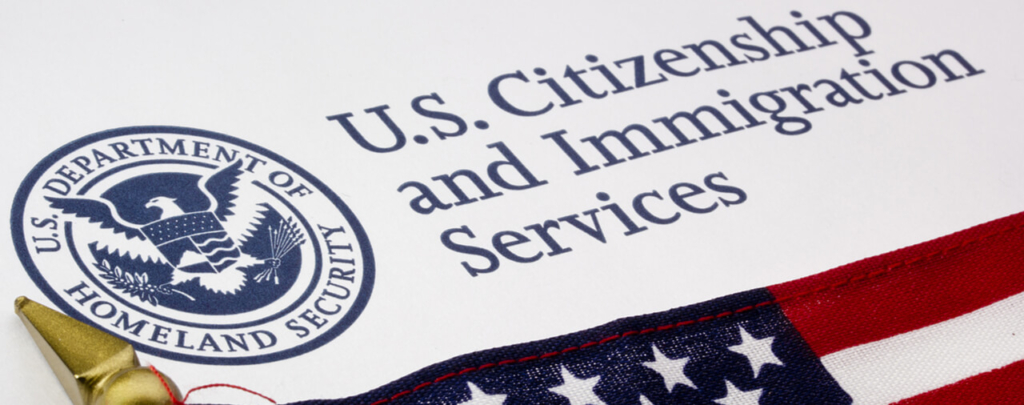- Introduction
- The Board of Immigration Appeals Rule
- The Second Circuit Rejects the BIA Rule
- Effect of the Decision
- Conclusion
Introduction
In this post, we will examine issues involving aliens who are nationals of more than one country and eligibility for asylum. The question is whether an alien who establishes a well-founded fear of persecution in one of his or her countries of nationality is eligible for asylum if he or she is also a national of a different country in which he or she does not have a well-founded fear of persecution. The Board of Immigration Appeals held in 2013 that a dual national is not eligible for asylum if he or she only fears persecution in one country of nationality but not the other countries [see our article on that decision]. However, in 2022, the United States Court of Appeals for the Second Circuit disagreed with the Board of Immigration Appeals, holding that the an alien is eligible for asylum so long as he or she establishes a well-founded fear of persecution in one country and that he or she is otherwise eligible for asylum relief. The dispute between the Board and the Second Circuit turned on the proper reading of section 101(a)(42) of the Immigration and Nationality Act (INA), which provides the definition of “refugee”:
The term ‘refugee’ means (A) any person who is outside any country of such person’s nationality … and is unable or unwilling to avail himself or herself to the protection of, that country because of persecution or a well-founded fear of persecution on account of race, religion, nationality, membership in a particular social group, or political opinion… (INA 101(a)(42)(A))
The Second Circuit’s decision is binding in cases arising in New York, Connecticut, and Vermont. Below, we will examine these interesting and important decisions and explain what they mean for dual nationals and nationals of more than two countries who are applying for asylum based on persecution in one country.
The Board of Immigration Appeals Rule
On May 3, 2013, the Board of Immigration Appeals (BIA) held in the Matter of B-R-, 26 I&N Dec. 119 (BIA 2013) [PDF version] that “[a]n alien who is a citizen or national of more than one country but has no fear of persecution in one of those countries does not qualify as a ‘refugee’ under [INA 101(a)(42)] … and is ineligible for asylum” [see our article]. Under the immigration laws, a “refugee” is an alien who is unable or unwilling to return to his or her country of nationality (or last habitual residence if the alien lacks nationality) on account of a well-founded fear of persecution on one of the five statutorily protected grounds (race, religion, nationality, political opinion, or particular social group). Meeting the definition of “refugee” is a prerequisite to eligibility for asylum (note that the definition of “refugee” is distinguishable from refugee status).
In reaching its conclusion, the Board relied on the structure of the INA and the history of the refugee provision, which is rooted in the United Nations Convention Relating to the Status of Refugees, July 28, 1951, 19 U.S.T 6259, 189 U.N.T.S. Matter of B-R-, 26 I&N Dec. at 121. The Board cited favorably to a 2002 second circuit decision in opining that the purpose of the asylum provision is to protect aliens who have nowhere else to turn, not to provide aliens who were persecuted in one country with a broader choice of options of where to settle. 26 I&N Dec. at 122, citing to Tchitchui v. Holder, 657 F.3d 132, 137 (2d Cir. 2011) [PDF version].
The Board’s ruling in Matter of B-R- means that if an alien is a national of more or one country and he or she establishes a well-founded fear of persecution in one country of his or her nationality but not the other countries, the alien does not meet the statutory definition of “refugee” and is thus not eligible for asylum. The Board explained the practical significance of its decision:
Once nationality is established [in a second country], it is the alien’s burden to demonstrate that the alternative country of nationality will not offer him protection. (26 I&N Dec. at 122)
If an alien is only a national of country A, he or she qualifies as a refugee by establishing a well-founded fear of persecution on account of a protected ground in country A. This is simple enough. However, under Matter of B-R-, if the alien is also a national of country B, the Board’s rule requires the alien to establish that country B would not offer him or her protection. Specifically, the Board would require the alien to show that he or she was unsuccessful in obtaining protection from the second country, country B in this scenario. The precise parameters of Matter of B-R- are not entirely clear in all cases, but the Board’s decision does not appear to necessarily require an alien to establish that he or she has a well-founded fear of persecution in country B. It does require the alien to establish that he or she is unable or otherwise unwilling to seek protection in country B. However, note that the Second Circuit in Zepada-Lopez, which we will discuss below, interpreted Matter of B-R- as requiring the alien to establish a well-founded fear of persecution in country B.
The Second Circuit Rejects the BIA Rule
The United States Court of Appeals for the Second Circuit, one of the twelve Federal circuit courts in the United States that has geographical jurisdiction [see article], became the first Circuit to publish its own precedent decision confronting Matter of B-R-. On June 28, 2022, the Second Circuit published a precedent decision in Zepeda-Lopez v. Garland, — F.4th — (2d Cir. 2022) [PDF version]. In Zepeda-Lopez, the Second Circuit held that a dual national only needs to establish persecution in one country of nationality in order to satisfy the threshold requirements for being a refugee under INA 101(a)(42) and thus be eligible for relief in the form of asylum.
Zepeda-Lopez concerned three aliens who were dual nationals of Honduras and Nicaragua. The immigration judge who conducted their removal hearing concluded that the aliens had established that they had a well-founded fear of persecution in Honduras. However, the immigration judge found that they made no such showing with regard to Nicaragua. Because the three aliens had not shown that they could not receive protection in Nicaragua, the immigration judge found that they were not “refugees” within the meaning of INA 101(a)(42) as the Board interpreted the statute in Matter of B-R-.
As we explained above, immigration judges are bound by the precedents of the Board of Immigration Appeals. The aliens appealed to the Board and in so doing, expressly asked the Board to revisit and overrule Matter of B-R-. The Board, however, dismissed the appeal. As a result, the aliens appealed from the Board’s decision to the Second Circuit.
The Second Circuit agreed with the petitioners, holding that the Board’s decision in Matter of B-R- was incorrect and that section 101(a)(42) of the INA unambiguously only requires an alien to establish a well-founded fear of persecution in one country of nationality, regardless of whether he or she has a similar fear in alternative countries of nationality. Where INA 101(a)(42) reads “[t]he term ‘refugee’ means (A) any person who is outside any country of such person’s nationality,” the Second Circuit held that “the phrase ‘any country of such person’s nationality,’ by itself, could refer to one country or to some or all country’s of the applicant’s nationality.” Zepeda-Lopez at 4. Because the Second Circuit concluded that INA 101(a)(42) is unambiguous* with respect to the dual nationality question, it concluded that the Board’s interpretation of the statute was not entitled to the administrative deference that courts are typically required to afford to agency interpretations of statutes. Id.
The Second Circuit also concluded that the Board’s interpretation of INA 101(a)(42) with respect to dual nationals was contrary to the INA as a whole. It noted that INA 101(a)(42)(A) provides that an alien is a refugee if he or she is unwilling to return to “that country” — which is singular. As a practical matter, the Court noted that it is possible for an alien to be a national of a country in which he or she never set foot. It opined the this highlights one reason why the rule Matter of B-R- contravenes the purpose of the asylum provision and did not properly discuss how Congress incorporated the U.N. Convention statement into the Immigration and Nationality Act.
Based on the foregoing, the Second Circuit granted the petition for review of the BIA’s decision, vacated the BIA’s decision in this particular case, and remanded the record to the immigration judge for further consideration of the petitioners’ asylum claims in a manner consistent with Zepeda-Lopez instead of Matter of B-R-.
Limitations of Zepada-Lopez
There are a few potential limitations to Zepada-Lopez that applicants and practitioners should be aware of — other than the jurisdictional issues which we will explain in the next section.
Firstly, Zepada-Lopez does not vitiate the firm resettlement bar found in INA 208(b)(2)(A)(vi). This provision bars aliens who have an offer of permanent resident status or citizenship prior to entering the United States or en route to the United States from being eligible for asylum. The Second Circuit explained in Zepada-Lopez that the firm resettlement bar “weeds out asylum applicants who have a safe homeland to turn to” and added that “refugee status is necessary, but not sufficient by itself, for a person to receive asylum.” Zepada-Lopez, at *5.
Secondly, the INA provides that an alien may not apply for asylum if the Government determines that he or she may be removed to a country other than the country in which he or she fears persecution where his or her life or freedom would not be threatened on a protected ground (INA 208(a)(2)(A)). A variation of the bar found in INA 208(a)(2)(C) can lead to the termination of asylum.
Thirdly, an alien who is granted asylum status, acquires a new nationality, and enjoys protection from the new country of nationality is subject to the termination of asylum status. INA 208(c)(2)(E). This provision applies to aliens who are on asylum status, not aliens who have acquired a new status. Because this provision applies to circumstances that occur after asylum status is granted, the issue is distinguishable from the matter of dispute in Matter of B-R- and Zepada-Lopez, but it is worth noting nevertheless. The Board cited to INA 208(c)(2)(E) in support of its legal reasoning in Matter of B-R- and the Second Circuit noted it in a footnote with a brief description of what it does.
Thus, it is entirely possible that even under Zepada-Lopez, an alien in a different case with more than one nationality may be found to be subject to the firm resettlement bar, the safe third country bar, or present negative equities that weigh against granting asylum. The core Second Circuit holding is that an alien need not prove that he or she has a well-founded fear of persecution in or is otherwise unable to every country of which he or she is a national in order to satisfy the “refugee” criterion.
Effect of the Decision
The Second Circuit is the first court to have rejected Matter of B-R- in a precedent decision. The Second Circuit has appellate jurisdiction over cases arising in New York, Connecticut, and Vermont. Thus, the Board of Immigration Appeals and all immigration adjudicators are bound to follow Zepada-Lopez instead of Matter of B-R- in cases arising in New York, Connecticut, and Vermont.
However, the Second Circuit’s jurisdiction is limited New York, Connecticut, and Vermont. Thus, so long as the Board stands by Matter of B-R-, the Board’s restrictive precedent on dual nationals and asylum remains the law in all cases arising outside of the Second Circuit’s jurisdiction. As of July 14, 2022, the situation is as follows for an alien who is the national of more than one country and who has established a well-founded fear of persecution in one country of nationality:
The case is being considered outside of New York, Connecticut, or Vermont: The alien must show that he or she is unable or unwilling to obtain protection in any country of which he or she is a national. Under Matter of B-R-, it appears that the threshold for establishing asylum eligibility is to show that the alien, for one reason or another, is unable to resettle in a second country of nationality. The alien may also seek to establish a well-founded fear of persecution in a second country of nationality.
The case is being considered in New York, Connecticut, or Vermont: The alien may meet the definition of “refugee” by establishing that he or she has a well-founded fear of persecution in one country of nationality, regardless of whether he or she is a national of any other country.
For the time being, we have one rule within the jurisdiction of the Second Circuit and a different rule for the rest of the country. It is possible that other circuits may eventually issue precedent decisions on the subject, but to date, only the Second Circuit has done so. It is also possible that the Board may eventually reevaluate its decision in light of the negative Second Circuit precedent, either standing by Matter of B-R- or crafting a new rule, but until that time, Matter of B-R- remains good law outside of the Second Circuit.
Conclusion
An individual should always consult with an experienced immigration attorney when applying for asylum [see category]. An attorney may assist an asylum applicant in preparing for his or her asylum hearing, procuring documents, making a case, and ancillary issues such as obtaining employment authorization in long-pending cases. Each asylum claim is unique, and cases in which the applicant is the national of more than one country presents additional complications, especially now if the cases arises outside the jurisdiction of the Second Circuit.



-1024x405.jpg)
-1024x405.jpg)
